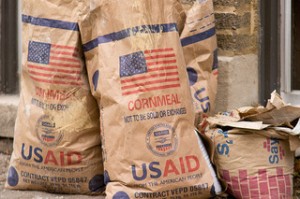The Future of USAID
Foreign Policy has published an interesting interview with Rajiv Shah, a United States Agency for International Development (USAID) administrator and former Gates Foundation employee. Here’s Shah on his efforts to bring a business-like mentality to USAID:
I’ve tried to bring that business-like rigor and the tendency to ask questions — some would say I ask far too many questions — to make sure that when we’re spending taxpayer resources, we’re doing it with that absolute focus that we are making an investment against generating a result.
Shah also comments on the organization’s new “partnerships” with corporations like Wal-Mart and Coca-Cola:
One of the big failings in food security in particular has been a lack of working with the private sector effectively. For instance, in Honduras and Guatemala our work with Wal-Mart is reaching more than 15,000 farming families. In that case, the farmers are producing potatoes and onions, and Wal-Mart works with farmers on training and preparation. They also provide guidelines that help farmers determine what to grow and when in order to sell to Wal-Mart. This type of engagement has led to a doubling and tripling of farmers’ household incomes. Yet over the last several decades, it’s been controversial to have companies like Wal-Mart in the development solution. I think it is the kind of long-term development program that is needed to succeed at scale over time.
And on “doing well by doing good” (the topic of a recent Freakonomics Radio podcast):
In the coming years, Africa is going to be a 900 million-plus person common market that is growing three times faster than the global economy. China has been making a big investment in Africa, and we’re going to want to make sure that American enterprises are part of the picture as well.Ten of the largest 15 trading partners we have were foreign aid recipients. South Korea was a major recipient of U.S. aid for decades, and today we have more jobs created in the U.S. because of our trade relationship with South Korea than we do with France.


Comments